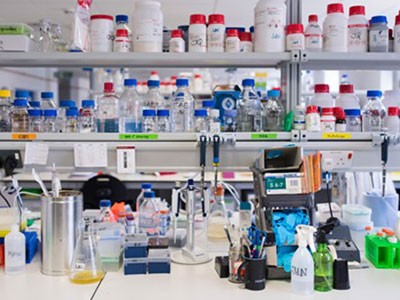
Graduation day for PhD scholars at the University of Bologna, Italy. Doctoral assessment in most countries is largely unchanged since the nineteenth century.Credit: Roberto Serra/Iguana Press/Getty
These days, there’s barely a world leader who doesn’t talk up science. Prime Minister Narendra Modi was the star turn at the annual Indian Science Congress, held this month in Nagpur, where he exhorted the nation’s researchers to do the science needed to make India self-reliant. At last October’s landmark Communist Party congress, Chinese Premier Xi Jinping set out his vision of how science and innovation could drive growth. And last August, US President Joe Biden signed the CHIPS and Science Act, which unlocks US$13.2 billion for semiconductor research and workforce development, in a bid to maintain the country’s technological primacy.
In each case, the message to researchers is crystal clear: leaders see science as essential to national prosperity, well-being and, of course, competitiveness. So, is research fit for the challenge of advancing, refining or critiquing these goals? Not exactly. And it won’t be until there is fundamental reform to the gateway to a research career: PhD training.
Training in trouble
As Nature and other publications have reported persistently, PhD training worldwide has been in trouble for some time. Surging inflation has eroded the already-meagre value of students’ stipends in most countries, creating a cost-of-living crisis. Early-career researchers constantly report concerns about a chronic lack of support and poor-quality supervision, with senior researchers rarely trained in mentorship. Racism and discrimination are systemic in academic culture in many places.
Collection: Career resources for PhD students
Furthermore, PhD candidates are inadequately prepared for the cross-disciplinary working and large teams that characterize cutting-edge science today. This is especially true for careers outside academic research, where the overwhelming majority of PhD candidates will be heading.
It is not all bad. Universities in a small number of high-income countries have reformed, or are reforming, PhD assessment. But in most places, and especially in low- and middle-income countries, a candidate’s work is still evaluated using a single-authored dissertation. This is ‘defended’ before a scholarly panel in what is still sometimes called a viva voce (‘with living voice’ in Latin), a nod to its nineteenth-century origins. And in many countries, candidates must publish in a journal before they get a PhD, something that critics say could fuel predatory publishing.
The system’s strains have become more obvious because the number of people doing PhD training has been rising sharply. According to the 2022 book Towards a Global Core Value System in Doctoral Education — available as an open-access PDF; see go.nature.com/3zihyuk — the number of PhDs awarded in China more than doubled from 23,400 in 2004 to 55,011 in 2016 (and reached around 60,000 in 2019). India’s numbers increased from 17,850 in 2004 to 25,095 in 2016; US figures climbed from 48,500 to 69,525 over the same period (see ‘The rise of the PhD’).
The rise of the PhD
The number of students awarded PhDs each year is expanding in a number of countries. In emerging economies, this follows growth in universal access to education.
Country |
2004 |
2008 |
2012 |
2014 |
2016 |
|---|---|---|---|---|---|
Brazil |
— |
10,700 |
13,912 |
16,745 |
20,605 |
China |
23,400 |
43,800 |
51,713 |
53,653 |
55,011 |
Germany |
23,100 |
25,600 |
26,807 |
28,147 |
29,303 |
India |
17,850 |
18,700 |
21,544* |
21,830 |
25,095 |
Japan |
16,900 |
17,300 |
15,911* |
15,714 |
15,805 |
Mexico |
— |
— |
— |
— |
6,970† |
Russia |
29,850 |
27,700 |
34,403 |
36,533 |
27,212 |
South Africa |
— |
— |
— |
— |
3,057 |
South Korea |
7,950 |
9,400 |
12,243 |
12,931 |
13,882 |
United Kingdom |
15,300 |
16,600 |
20,438 |
25,020 |
27,366 |
United States |
48,500 |
61,730 |
62,071 |
67,591 |
69,525 |
The doctorate updated
Too often, PhD training is still, at least conceptually, organized as it was after its development in and subsequent export from mid-nineteenth-century Germany. At that time, young scholars were attached to individual professors in a master–apprentice relationship, with the objective of safeguarding and advancing knowledge in individual disciplines.
That cannot continue if the next generation of scholars is to meet society’s demands. There needs to be a revolution in the organization and funding of PhD training. And it must be on a similar scale to the shake-up that took place when school and university education stopped being a privilege enjoyed by relatively small numbers of people — those with wealth, or those training for occupations such as politics, religion or teaching. As education expanded to be open to everyone (at least in theory), it was no longer feasible to offer tuition in small groups where one person did most of the teaching, with little or no training. Countries introduced subject specialists as teachers; they limited class sizes, experimented with new educational technologies, collaborated on quality-assurance measures and drew on educational research to understand how students learn in different ways.
The editors and contributors of Towards a Global Core Value System in Doctoral Education, who are all experts in higher-education research, policy or practice, provide snapshots of the state of play in various countries, including all-important examples of innovation in PhD training. Some candidates are instructed in cohorts with more than one supervisor, so that students are less isolated and better protected if a relationship with a single supervisor goes bad. Some take additional courses of study, or have their research progress assessed periodically — the kind of guided approach that happens in education more broadly.
Reforming PhD training will be like turning a tanker. It will be slow. It will require planning and resources. But the end result must be a transformation on a massive scale, just as happened when primary, secondary and university education was reformed. If our leaders want scientists to work harder for society, they, in turn, need to work with research to ensure that PhD training finally exits the nineteenth century and joins the twenty-first.

 Collection: Career resources for PhD students
Collection: Career resources for PhD students
 ‘We can barely afford rent’: PhD students in Ireland seek funding boost
‘We can barely afford rent’: PhD students in Ireland seek funding boost
 Classroom assistance: the scientists turning the tools of their trade to education
Classroom assistance: the scientists turning the tools of their trade to education
 The scandal of researchers paid less than a living wage
The scandal of researchers paid less than a living wage
 ‘Beyond anything I could have imagined’: graduate students speak out about racism
‘Beyond anything I could have imagined’: graduate students speak out about racism


